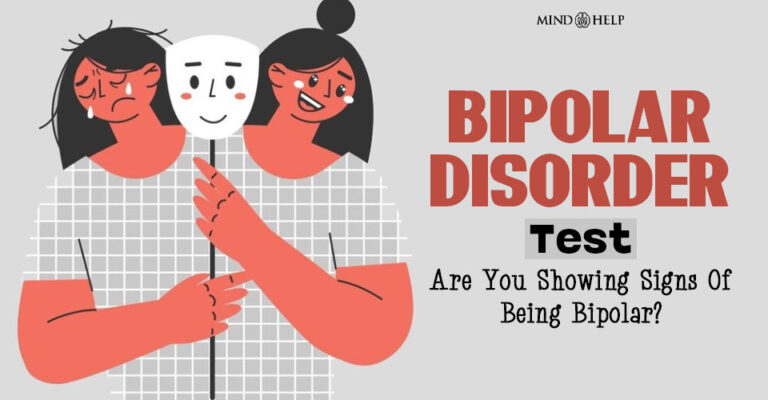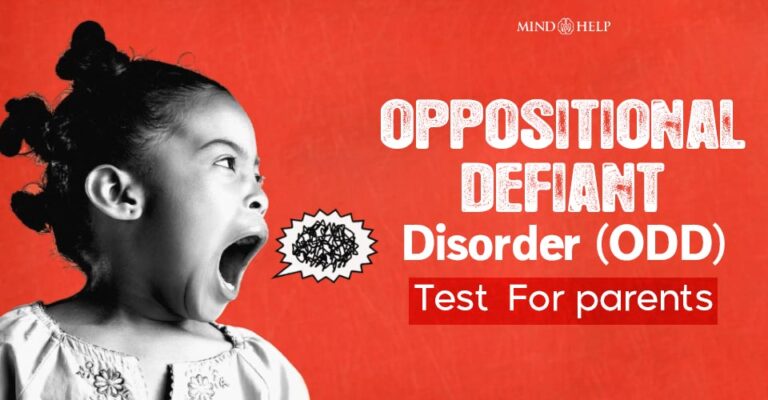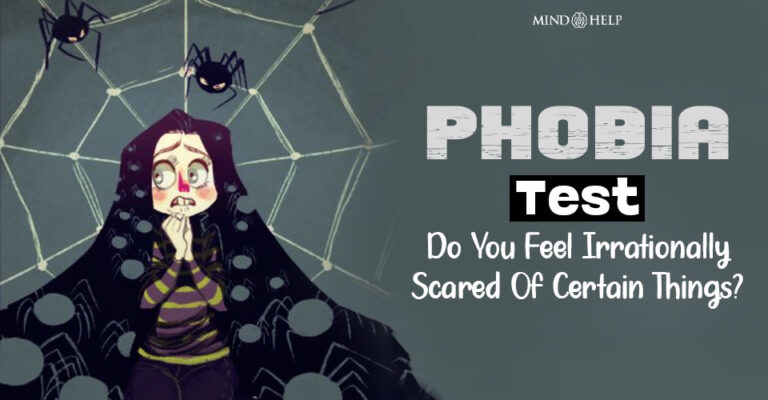Does your child show difficulties in executing conversations with others and understanding body language? Does your child shows rigid interest in any specific object and repeatedly ask to maintain the same routine every day? Does your child show repetitive behavior such as hand or finger flapping or peculiar body movements? Take this online Asperger’s Syndrome Test to know if your child has Asperger-related symptoms.
Please note: This test is a self-assessment and not a diagnostic test.
What Is Asperger’s Syndrome?
Asperger’s Syndrome is a neurological disorder that is considered to be a part of the autism spectrum. It is characterized by repetitive, restricted patterns of behavior and deficits in social interaction and non-verbal communication. Asperger’s Syndrome is different from other disorders in the autism spectrum as it does not involve cognitive and language deficits.
Some experts believe that Asperger’s Syndrome is caused by changes in the brain, however, research is still underway. Apart from genetics, being exposed to environmental toxins such as viruses or chemicals as well as exposure to air pollutants might also contribute to the development of Asperger’s.
It’s also believed that boys tend to get diagnosed 4 times more with this syndrome than girls. However, according to some research, this is because autistic girls mostly get underdiagnosed or they might be better protected genetically.
Read More About Asperger’s Syndrome Here
Below is our free ASPERGER’S SYMPTOMS CHECKLIST to help you find out if your child has Asperger’s symptoms.
Instructions For Taking Asperger’s Syndrome Test Online
A list of statements are mentioned below in this Asperger’s test that relates to life experiences common among people who have Asperger’s syndrome. Please read each statement carefully, and indicate how often you have observed the same or similar signs in your child in the past few months.
Quiz Summary
0 of 15 Questions completed
Questions:
Information
You have already completed the quiz before. Hence you can not start it again.
Quiz is loading…
You must sign in or sign up to start the quiz.
You must first complete the following:
Results
Results
Your time:
Time has elapsed
You have reached 0 of 0 point(s), (0)
Earned Point(s): 0 of 0, (0)
0 Essay(s) Pending (Possible Point(s): 0)
Categories
- Not categorized 0%
-
Low signs of Binge-Watching
Your present score reveals that you have low signs of Binge-watching. It reflects that you may not likely seek engagement by watching multiple TV shows/web series/movies at a single sitting all the time. At a few times, it might be possible that you like to seek pleasure from watching shows, but that does not lead you to stick with that all the time. Besides this, your score reveals that slightly you have a habit of watching more than one show at a time but that does not influence your work time. It also might be possible that to a few extent, you seem to prioritize your engagement in watching shows/series rather than direct interaction with friends/family members. Further, it can also be noted from your response that to a few extents, you might engage yourself to watch shows/series when might feel sad, bored, or tired dealing with the hassles of daily life, but these signs would not impact other areas of your life. However, it should be noted that this is just a basic self-assessment tool, if you think the results do not accurately match your characteristics, then we would encourage you to consult a Psychologist for an accurate result.
-
Moderate signs of Binge-Watching
Your present score reveals that you have moderate signs of Binge-watching. It reflects that to a moderate extent, you might likely seek engagement by watching multiple TV shows/web series/movies in a single sitting. It might be possible that sometimes you like to seek pleasure from watching more than one show, which may also intrude on your work time. Besides this, your score reveals that to some extent, you have a habit of watching shows continuously forgetting your scheduled work, or skipping meals and sleep. It also might be possible that to some extent, you seem to prioritize your engagement in watching shows/series rather than direct interaction with friends/family members. Further, it can also be noted from your response that to some extent, you seem to engage yourself to watch shows/series when might feel sad, bored, or tired dealing with the hassles of daily life and might also feel a sense of relief when watching. These signs might have some impact on other areas of your life. However, it should be noted that this is just a basic self-assessment tool, if you think the results do not accurately match your characteristics, then we would encourage you to consult a Psychologist for an accurate result.
-
High signs of Binge-Watching
Your present score reveals that you have high signs of Binge-watching. It reflects from your response that you seem to strongly seek engagement by watching multiple TV shows/web series/movies in a single sitting. Also, your score indicates that in most cases you seem to seek pleasure from watching more than one show, which also seems to intrude on your work time. Besides this, your score reveals that you seem to have a strong habit of watching shows continuously forgetting your scheduled work, or skipping meals and sleep. It also might be possible that to many extents, you seem to prioritize your engagement in watching shows/series rather than direct interaction with friends/family members. Further, it can also be noted from your response that in most cases, you seem to engage yourself to watch shows/series when might feel sad, bored, or tired dealing with the hassles of daily life and might also feel a strong sense of relief when watching. These signs might have a strong impact on other areas of your life. However, it should be noted that this is just a basic self-assessment tool, if you think the results do not accurately match your characteristics, then we would encourage you to consult a Psychologist for an accurate result.
- Review
- Answered
- Correct
- Incorrect
-
Question 1 of 15
1. Question
-
Question 2 of 15
2. Question
-
Question 3 of 15
3. Question
-
Question 4 of 15
4. Question
-
Question 5 of 15
5. Question
-
Question 6 of 15
6. Question
-
Question 7 of 15
7. Question
-
Question 8 of 15
8. Question
-
Question 9 of 15
9. Question
-
Question 10 of 15
10. Question
-
Question 11 of 15
11. Question
-
Question 12 of 15
12. Question
-
Question 13 of 15
13. Question
-
Question 14 of 15
14. Question
-
Question 15 of 15
15. Question
Quiz Summary
0 of 15 Questions completed
Questions:
Information
You have already completed the quiz before. Hence you can not start it again.
Quiz is loading…
You must sign in or sign up to start the quiz.
You must first complete the following:
Results
Results
Your time:
Time has elapsed
You have reached 0 of 0 point(s), (0)
Earned Point(s): 0 of 0, (0)
0 Essay(s) Pending (Possible Point(s): 0)
Categories
- Not categorized 0%
-
Low signs of Binge-Watching
Your present score reveals that you have low signs of Binge-watching. It reflects that you may not likely seek engagement by watching multiple TV shows/web series/movies at a single sitting all the time. At a few times, it might be possible that you like to seek pleasure from watching shows, but that does not lead you to stick with that all the time. Besides this, your score reveals that slightly you have a habit of watching more than one show at a time but that does not influence your work time. It also might be possible that to a few extent, you seem to prioritize your engagement in watching shows/series rather than direct interaction with friends/family members. Further, it can also be noted from your response that to a few extents, you might engage yourself to watch shows/series when might feel sad, bored, or tired dealing with the hassles of daily life, but these signs would not impact other areas of your life. However, it should be noted that this is just a basic self-assessment tool, if you think the results do not accurately match your characteristics, then we would encourage you to consult a Psychologist for an accurate result.
-
Moderate signs of Binge-Watching
Your present score reveals that you have moderate signs of Binge-watching. It reflects that to a moderate extent, you might likely seek engagement by watching multiple TV shows/web series/movies in a single sitting. It might be possible that sometimes you like to seek pleasure from watching more than one show, which may also intrude on your work time. Besides this, your score reveals that to some extent, you have a habit of watching shows continuously forgetting your scheduled work, or skipping meals and sleep. It also might be possible that to some extent, you seem to prioritize your engagement in watching shows/series rather than direct interaction with friends/family members. Further, it can also be noted from your response that to some extent, you seem to engage yourself to watch shows/series when might feel sad, bored, or tired dealing with the hassles of daily life and might also feel a sense of relief when watching. These signs might have some impact on other areas of your life. However, it should be noted that this is just a basic self-assessment tool, if you think the results do not accurately match your characteristics, then we would encourage you to consult a Psychologist for an accurate result.
-
High signs of Binge-Watching
Your present score reveals that you have high signs of Binge-watching. It reflects from your response that you seem to strongly seek engagement by watching multiple TV shows/web series/movies in a single sitting. Also, your score indicates that in most cases you seem to seek pleasure from watching more than one show, which also seems to intrude on your work time. Besides this, your score reveals that you seem to have a strong habit of watching shows continuously forgetting your scheduled work, or skipping meals and sleep. It also might be possible that to many extents, you seem to prioritize your engagement in watching shows/series rather than direct interaction with friends/family members. Further, it can also be noted from your response that in most cases, you seem to engage yourself to watch shows/series when might feel sad, bored, or tired dealing with the hassles of daily life and might also feel a strong sense of relief when watching. These signs might have a strong impact on other areas of your life. However, it should be noted that this is just a basic self-assessment tool, if you think the results do not accurately match your characteristics, then we would encourage you to consult a Psychologist for an accurate result.
- Review
- Answered
- Correct
- Incorrect
-
Question 1 of 15
1. Question
-
Question 2 of 15
2. Question
-
Question 3 of 15
3. Question
-
Question 4 of 15
4. Question
-
Question 5 of 15
5. Question
-
Question 6 of 15
6. Question
-
Question 7 of 15
7. Question
-
Question 8 of 15
8. Question
-
Question 9 of 15
9. Question
-
Question 10 of 15
10. Question
-
Question 11 of 15
11. Question
-
Question 12 of 15
12. Question
-
Question 13 of 15
13. Question
-
Question 14 of 15
14. Question
-
Question 15 of 15
15. Question



